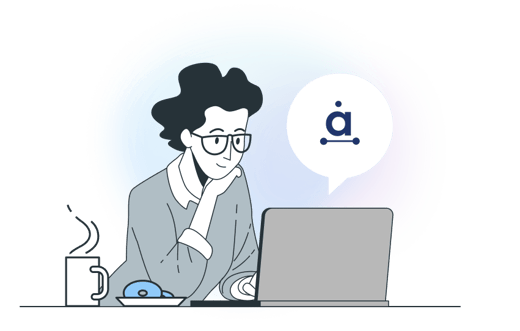The future of market research is here: Introducing ChatGPT
Market research professionals are constantly looking for new tools and technologies. Artificial intelligence (AI) has recently emerged as a powerful force in this regard, with one tool in particular standing out as a game-changer: ChatGPT.
ChatGPT is a revolutionary AI tool that combines natural language processing (NLP) with machine learning (ML) to generate hypotheses, insights, and great writing at scale. For free. It can streamline market research efforts, condense and analyze large volumes of data, and provide a solid foundation of audience insights to inform marketing strategies.
In this article, we will explore the ways that ChatGPT will impact the job of a market researcher. We will discuss how it can radically speed up, increase the quality of, and reduce the cost of market research. We’ll argue that it will be revolutionary in its impact and discuss how it replaces some core skills and enhances others. Additionally, we will discuss the challenges and pitfalls to watch out for when using ChatGPT and how to balance AI with human expertise and creativity. We’ll leave you with practical steps we recommend you take to make the most of this opportunity.
By the end of this article, you will have a better understanding of how ChatGPT should be integrated into your work as a market researcher. It will change everything. We promise.
Unlocking insights at scale: How ChatGPT is changing market research
One of the most significant benefits of using ChatGPT in market research is its ability to streamline existing processes. By condensing and analyzing the impossibly large volumes of data on which it is trained, ChatGPT can save market researchers a significant amount of time and effort in exploring new categories, identifying audience needs and hypothesizing about audience behaviors. The tool can also help market researchers gain a deeper understanding of customer feedback and social media conversations, which can be easily loaded on a project-by-project basis.
One of our favorite uses is generating hypotheses, insights, and suggestions at scale. This can be particularly useful in the early stages of market research, when we are trying to identify potential audience needs, frustrations, and opportunities to refine, validate and size. With the right guidance, you can save several days of hard work and produce results that are more comprehensive, of higher quality, and communicated in a more effective way than you would have been able to achieve alone.
Some examples where we have successfully used ChatGPT in market research in the last few days include:
- Coming up with a list of category-related needs at the *pitch* stage with a client. Usually, we’d not get to this until a couple of weeks into the project. This allowed a much richer conversation about how the project would go than would otherwise have been possible at this stage
- Analyzing customer feedback for a large entertainment brand. We don’t usually do this kind of work. But we were able to pull out themes and write a helpful report into the big opportunities more quickly and more comprehensively than we otherwise would have done
- Helping a client come up with great ideas for integrating IP from a famous TV show into their product. We helped get to a comprehensive list of opportunities that met their audience needs much more quickly and with way less research into the IP than we otherwise would have done. Freeing up the experts to refine and enhance our ideas rather than having to do the basics
These simple examples demonstrate the power of ChatGPT in market research and hint at the potential it has to revolutionize the field.
Replacing or enhancing? How ChatGPT is changing the market research skillset
ChatGPT is a powerful tool that can replace some traditional market research skills. For example, ChatGPT's ability to condense and analyze large volumes of data can make manual data analysis unnecessary. Additionally, ChatGPT's ability to generate hypotheses, insights, and suggestions at scale can make some traditional brainstorming and idea generation methods obsolete.
We don’t expect this to result in any job losses though. Quite the opposite. We believe that this allows people to be freed from tedious raw data analysis and have more time for more creative tasks. They are also able to come up with more comprehensive insights and ideas, in a fraction of the time it would normally take them. This means they can focus on more important, bigger-picture tasks instead of being confined to monotonous tasks. Furthermore, having a tool like ChatGPT helps people think outside the box and generate unique, innovative solutions that they may not have been able to come up with before.
ChatGPT also enhances market research skills. For example, ChatGPT's ability to analyze large volumes of data can provide market researchers with a deeper understanding of customer feedback and social media conversations than would have been possible before. Additionally, ChatGPT's ability to generate hypotheses, insights, and suggestions at scale can help market researchers identify new areas of interest and generate ideas for further exploration. Leading to better work as well as the ability to take on more.
To effectively integrate ChatGPT into your work as a market researcher, it is important to understand the specific tasks that ChatGPT is particularly good at and to focus on those tasks. Additionally, it is important to use specific prompts to guide ChatGPT's output and to test and refine the output to ensure the best results. (Hence our book, which aims to solve both of these problems for you!)
It's also important to remember that ChatGPT is not a replacement for human oversight. Quite the opposite. It requires it! It's a tool to be used in conjunction with and overseen by human expertise and creativity. Market researchers should use the insights and hypotheses generated by ChatGPT as a starting point for further exploration and analysis, rather than as the final answer. The final answer has to be owned by and led by human judgment and creativity, as IBM slide from 1979 makes clear:
.jpeg?width=1200&height=880&name=FkDHvg0XgAkkoIW%20(1).jpeg)
So, while ChatGPT can replace some traditional market research skills, we expect that to be empowering and uplifting for those affected, as they can take on more creative tasks. It also enhances other market research skills. When balanced with expertise and creativity, it is an incredible positive superpower for any person in any market research team.
Avoiding over-reliance: Striking the right balance
While ChatGPT is a powerful tool for market researchers, it is important to be aware of the pitfalls. One of the biggest challenges of using ChatGPT is that it may not always produce useful results on the first try. It's important to approach ChatGPT with a sense of experimentation and be willing to iterate on your prompts to get the best results.
Another challenge is the risk of over-reliance on automation. It's important to balance using ChatGPT and maintaining a human touch. Market researchers should use the insights and hypotheses generated by ChatGPT as a starting point for further exploration and analysis, rather than as the final answer.
Finally, it is important to know that ChatGPT is not a magic bullet. It is a tool that can help market researchers make more informed decisions, but it is not a replacement for human expertise and creativity. Market researchers should use ChatGPT in conjunction with other tools and methods to gain a holistic understanding of their audience and to make informed decisions.
A step change & a tool for thinking about the future
By approaching ChatGPT with a sense of experimentation, striking a balance between automation and human touch, and using it in conjunction with other tools and methods, market researchers will find themselves with a new superpower. They can support more brands in more ways and do so better, quicker and cheaper than before.
The world of market research is constantly evolving, and new tools and technologies are constantly emerging. ChatGPT is a step change, though. It is a revolutionary technology that offers unparalleled speed, affordability (FREE!) and breadth of capabilities, giving those that use it an instant edge over their competition. Its real-time user interactions, personalized guidance and lightning-fast responses make it unlike any technology that has come along to help us do our jobs in the past. It is a truly revolutionary tool that has the potential to change the game for market researchers.
But ChatGPT is more than just a tool - it's also a way of thinking about how to balance human creativity with data-driven technology. Market researchers should use ChatGPT as part of a balanced approach that combines human creativity with data-driven technology. We believe this valuable lesson will be critical as future waves of AI innovation hit us, also.
As with any new tool, there are certainly challenges and pitfalls to watch out for when using ChatGPT. We outline these clearly in PROMPT. But with the right approach, market researchers can use ChatGPT to gain a deeper understanding of their audiences and make more informed decisions.
From understanding to action: How to integrate ChatGPT into your market research
Now that you have a better understanding of how ChatGPT can be integrated into your work as a market researcher, it's time to take action. Here are some steps that you should take to make the most of this gift:
- Test ChatGPT: Just start. Experiment with ChatGPT using different prompts and testing the output to see how it can be used to generate hypotheses, insights, and suggestions.
- Identify specific tasks: Identify the specific tasks that ChatGPT is particularly good at, such as analyzing large volumes of data or generating ideas and content at scale. Focus on these tasks and get really good at using ChatGPT for them.
- Balance automation with a human touch: Remember to balance using ChatGPT and maintaining a human touch. Use the insights and hypotheses generated by ChatGPT as a starting point for further exploration and analysis, rather than as the final answer.
- Use in conjunction with other tools and methods: Use ChatGPT in conjunction with other tools and methods to gain a holistic understanding of your audience and make informed decisions.
- Continuously learn and adapt: Keep learning about ChatGPT, its capabilities and limitations and how it can best be used in your work as a market researcher.
By taking these actionable steps, you can make the most of this gift, get ahead and help shape the future of our industry. We hope PROMPT helps and can’t wait to see what you do with it!





